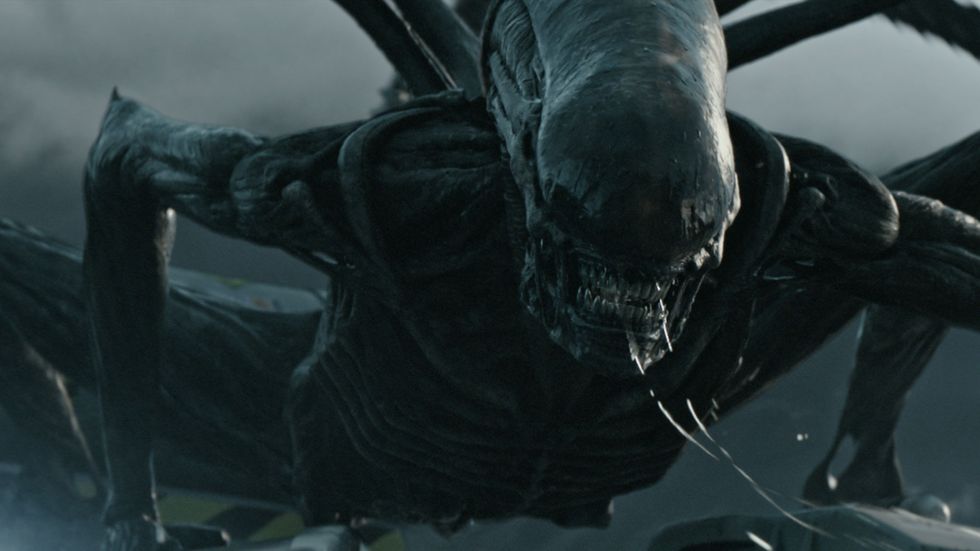Fans of the original sci-fi/horror classic Alien can agree that since its original release, Ridley Scott’s Alien has been both terrifying and intriguing audiences around the world for generations. Nearly forty years since the first film, the newest installment of the Alien series mirrors the same engrossing effects of its predecessor with its profound thematic elements, gender-defying lead role, and masterfully crafted alien life forms that leave audiences cringing in their seats.
Without giving too much away for those who have yet to see the film, after watching, I left the theatre heavy in thought. Why? Alien: Covenant tackled many complex themes such as creation and origin, leadership and judgment, and more famously: a strong masculine female lead left fighting to the death to protect her crew. Most fascinating though was the exploration of humanity itself and our ability to create life, yet humanity’s inability to forgo death through procuring immortality. From the perspective of the extraterrestrial beings, this defines humans as their one true weakness, leaving them almost powerless in the eyes of one of the main characters, David.
This fragility of human existence is further exemplified as the captain errs in judgment by deciding to divert from their mission, which ultimately leads to the peril the crew endures. Ridley Scott successfully explores human limitations and strengths in this way by pitting characters against the “other”- the aliens. From a broader perspective, the success of the films rely on this standpoint by exploiting the questions that have persisted throughout history regarding the unexplainable, the unnatural, and the unknown. Characters grapple questions surrounding human ability to create life or machines and technology and those concepts are always polarized by the wonderment surrounding death and the afterlife. Furthermore, acknowledging death and uncertainty within the film allows for a collective experience for audiences to delve into what makes humanity so complicated compared to other life on earth. In this aspect, the Alien films literally act as a lens into the interpersonal conflicts within us all as we wrestle with certain power and the inevitability of consequent powerlessness to avoid what terrifies us most.
Death, illness, pain, inadequacy, and fear are but a few aspects of humanity that are inescapable. Still, as humans, we have the ability to examine these instances of vulnerability in order to come to some form of acceptance. In my mind, that qualifies as strength and what separates “us” from “them”; granting humans autonomy to decide how to live and to exceed our thoughts, ideas, and abilities beyond natural instinct or drives — food and survival — which is the propelling force of the films antagonists. The alien life form only lives to breed and survive, enacting chaos, inevitably limiting them to pure destruction rather than creation. Now, does that really make the aliens stronger than humans?
















